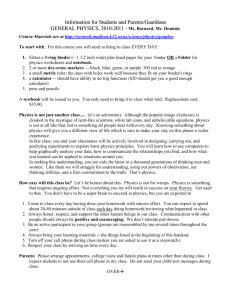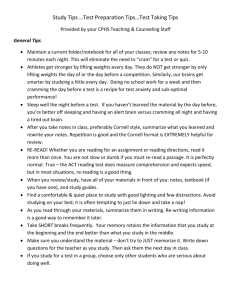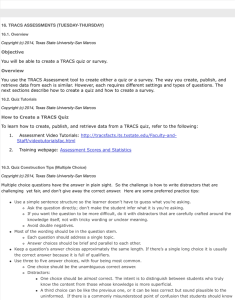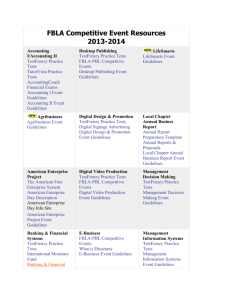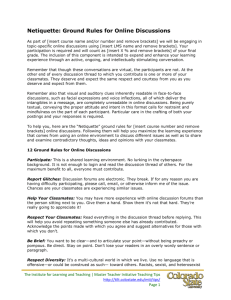More tips: Modified from http://www.stetson.edu/~mhale/teach/study
advertisement
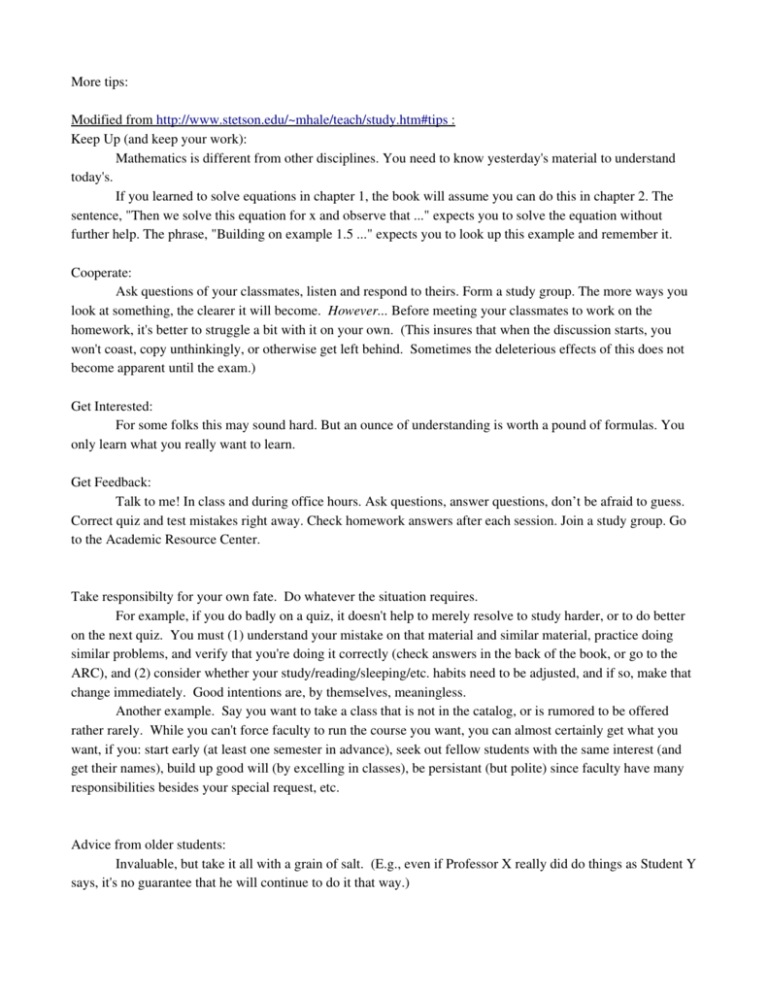
More tips: Modified from http://www.stetson.edu/~mhale/teach/study.htm#tips : Keep Up (and keep your work): Mathematics is different from other disciplines. You need to know yesterday's material to understand today's. If you learned to solve equations in chapter 1, the book will assume you can do this in chapter 2. The sentence, "Then we solve this equation for x and observe that ..." expects you to solve the equation without further help. The phrase, "Building on example 1.5 ..." expects you to look up this example and remember it. Cooperate: Ask questions of your classmates, listen and respond to theirs. Form a study group. The more ways you look at something, the clearer it will become. However... Before meeting your classmates to work on the homework, it's better to struggle a bit with it on your own. (This insures that when the discussion starts, you won't coast, copy unthinkingly, or otherwise get left behind. Sometimes the deleterious effects of this does not become apparent until the exam.) Get Interested: For some folks this may sound hard. But an ounce of understanding is worth a pound of formulas. You only learn what you really want to learn. Get Feedback: Talk to me! In class and during office hours. Ask questions, answer questions, don’t be afraid to guess. Correct quiz and test mistakes right away. Check homework answers after each session. Join a study group. Go to the Academic Resource Center. Take responsibilty for your own fate. Do whatever the situation requires. For example, if you do badly on a quiz, it doesn't help to merely resolve to study harder, or to do better on the next quiz. You must (1) understand your mistake on that material and similar material, practice doing similar problems, and verify that you're doing it correctly (check answers in the back of the book, or go to the ARC), and (2) consider whether your study/reading/sleeping/etc. habits need to be adjusted, and if so, make that change immediately. Good intentions are, by themselves, meaningless. Another example. Say you want to take a class that is not in the catalog, or is rumored to be offered rather rarely. While you can't force faculty to run the course you want, you can almost certainly get what you want, if you: start early (at least one semester in advance), seek out fellow students with the same interest (and get their names), build up good will (by excelling in classes), be persistant (but polite) since faculty have many responsibilities besides your special request, etc. Advice from older students: Invaluable, but take it all with a grain of salt. (E.g., even if Professor X really did do things as Student Y says, it's no guarantee that he will continue to do it that way.)



